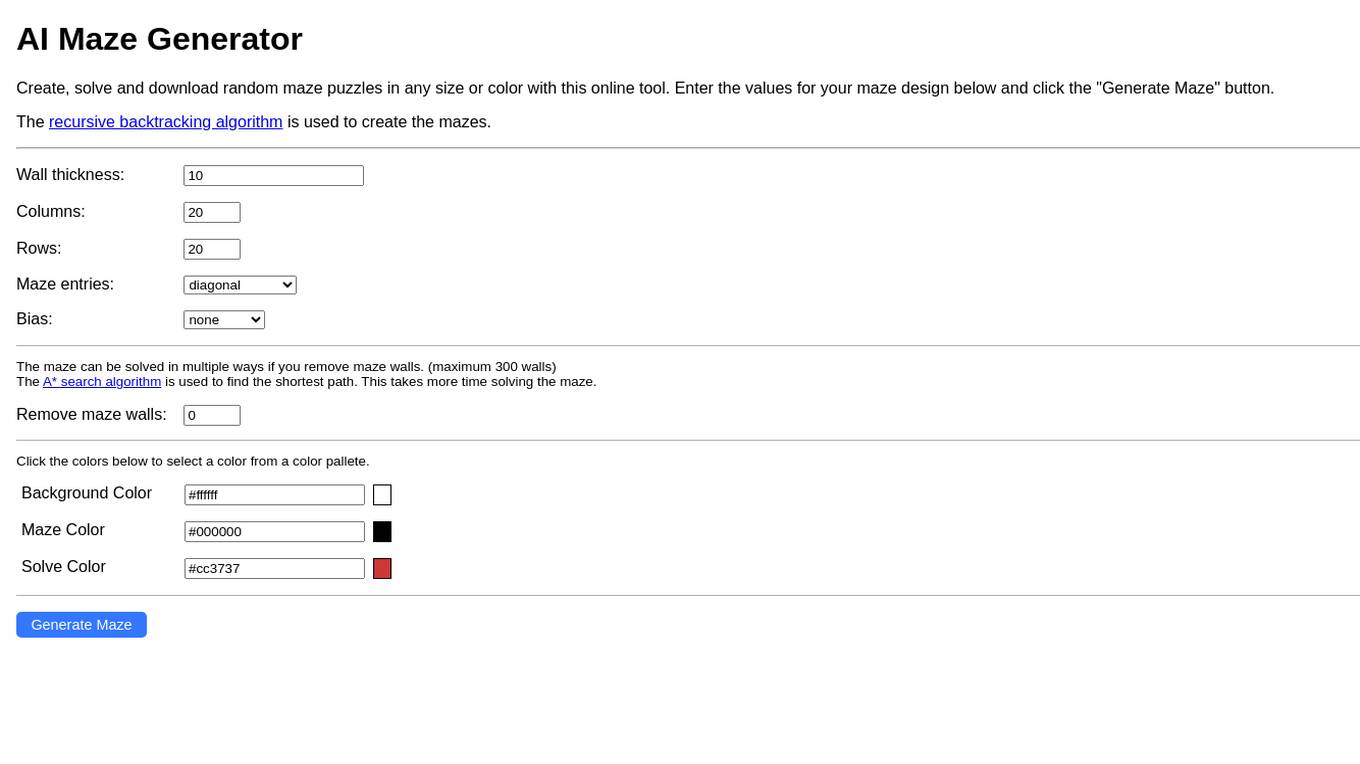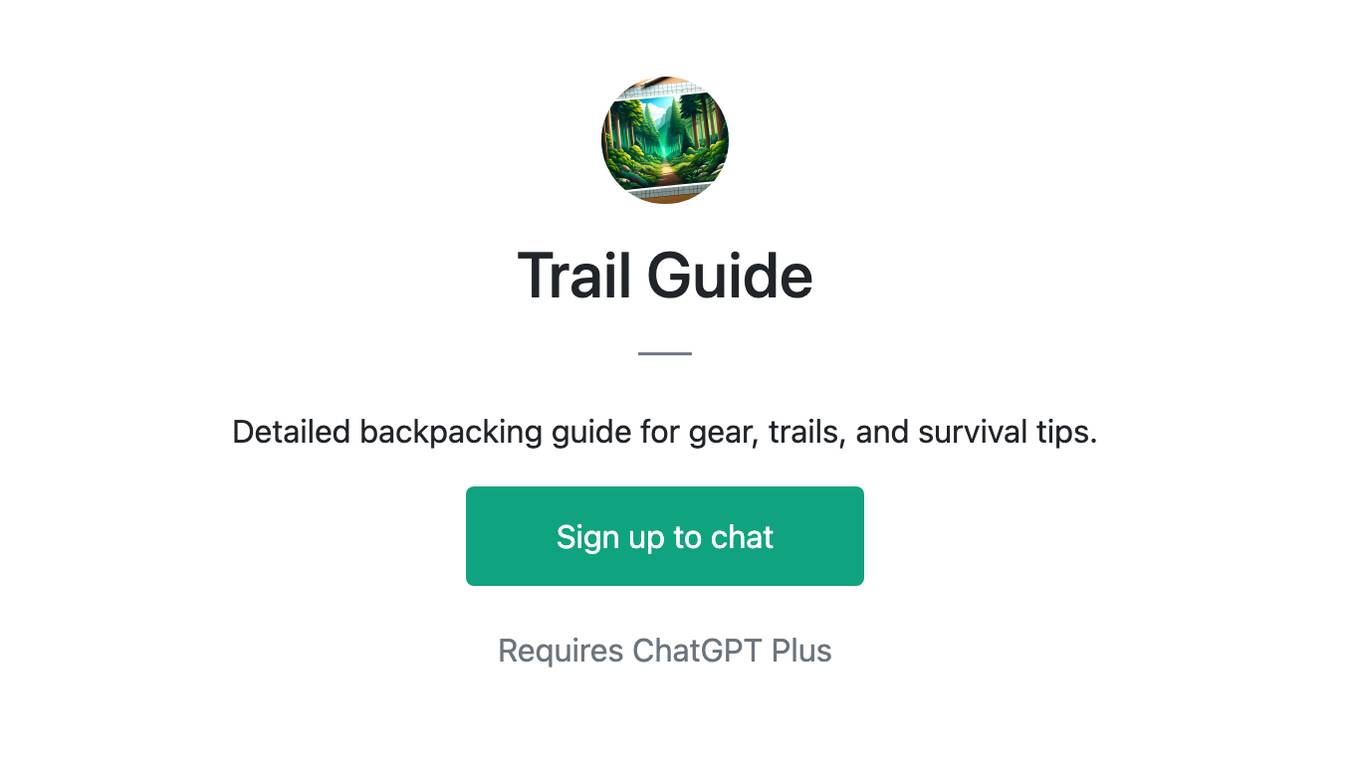Best AI tools for< Backpacking Guide >
Infographic
2 - AI tool Sites

PlanTripAI
PlanTripAI is an AI-powered trip planning tool that helps users create customized itineraries based on their interests, preferences, and budget. The tool uses a vast library of cities, guides, and itineraries to generate automated itineraries that can be previewed, downloaded, and shared. PlanTripAI offers a variety of trip preferences to choose from, including city exploration, cultural immersion, nature exploration, food discovery, nightlife, photography, luxury travel, relaxation, backpacking, experience seeking, and active travel. Users can also specify their budget and preferred transportation options. PlanTripAI's itineraries are fully owned by the user, including selling rights and copyright.

AI Maze Generator
The AI Maze Generator is an online tool that allows users to create, solve, and download random maze puzzles in various sizes and colors. It utilizes the recursive backtracking algorithm to design mazes and the A* search algorithm to find the shortest path. Users can customize maze specifications like wall thickness, columns, rows, maze entries, and bias. The tool offers a user-friendly interface for maze creation and solving, providing a fun and engaging experience for maze enthusiasts.
0 - Open Source Tools
2 - OpenAI Gpts

Hiking Guru
Hi, I'm your go-to guide for everything hiking. From beginner tips to advanced techniques, gear advice, and Leave No Trace principles, I'm here to help elevate your hiking experience. Ask me a question!
